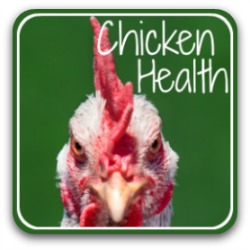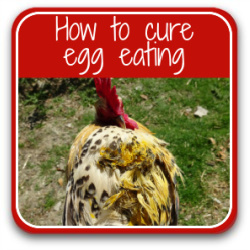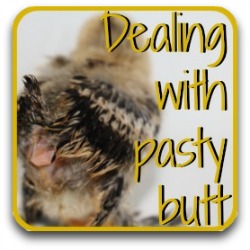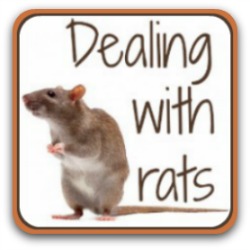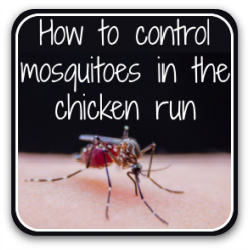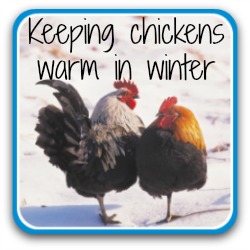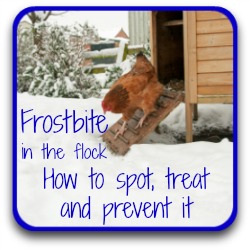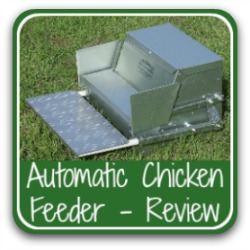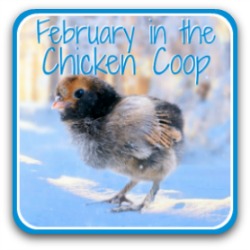- Home
- Challenges
Backyard chicken problems - and their solutions.
Backyard chickens are pretty easy to care for. But problems do happen and knowing what to do when they arise is critical to your flock's well-being.
Good husbandry is the key to raising healthy, happy chickens. Even with the best care in the world, though, you may face several acute backyard chicken problems during your time with your flock.
It's always good to be prepared to face them before they happen.
Here are links to some of the most common issues faced by chicken owners, whether raising poultry in the city or homesteading in an idyllic rural area.
Each article covers not only the problem, but easily implemented solutions.
Use these links to jump to whichever section you're particularly interested in – or read through them all.
General: what is animal husbandry?; general health issues; feather loss; the pecking order; why does egg laying stop?; egg eating; free natural health ebook.
From chick to adult: problems through the stages of chicken life: treating wry neck in chicks; pasty butt; chicks who learn to fly; clipping wings; dealing with roosters who grow up!
Rodents and Predators: rats and mice; red mite; flies; mosquitoes; predators.
Seasonal: heatstroke; keeping chickens warm in winter; frostbite.
Acute illness and death: bird flu; sudden death syndrome; isolating sick birds; in memoriam.
Section 1: general issues and problems in backyard chicken keeping.
What is animal husbandry?
Good husbandry can be viewed as steps necessary to prevent backyard chicken problems.
It is the care of any livestock, including poultry, to ensure they have the longest, happiest and most productive life possible.
It makes simple common sense whether you're raising chickens in your urban backyard, or on a rural homestead or smallholding.
This article covers five simple things you can do to keep your chickens safe, healthy and free from infection and disease.
Problems in chicken health
This page will lead you to all my articles about specific health issues in your flock.
From problems with newly-hatched chicks to adult diseases and specific complications related to chickens as they age, the information covers how to spot illness, what to do about it and how to prevent it happening again.
It's always better to be prepared before these things happen. These articles show you how.
Feather loss
Have you noticed your chickens losing feathers recently?
There can be a number of reasons: some are natural seasonal changes, others can be caused by disease.
This article covers all the different causes of feather loss, together with information about what to do in each case.
The pecking order
It happens in every flock larger than three chickens – a natural way of establishing a hierarchy within a flock.
But there are times when it can descend into bullying, which needs to be managed before it becomes a problem.
This article describes the origins of the pecking order: what it means, how it's dealt with by the flock, how to tell what it means for your own chickens and what to do if it becomes a problem.
Why are my chickens not laying eggs?
There are times when we have a glut of eggs from our backyard flock. And there are times when egg laying seems to slow down or even stop.
What causes this? How can we identify the reasons when hens stop laying, and what can we do to help them start again?
Here are ten possible reasons, and their solutions.
Egg eating: spot, treat, prevent
Chickens who eat their own eggs will quickly become a major problem.
This article explains how to spot the culprit, gives 10 steps to prevent egg eating happening in the first place, and offers three possible solutions if it has already become a problem.
Once the habit is established, it is extremely hard to break. Takes steps now to prevent this becoming an issue in your flock.
Backyard chicken problems solved! Free ebook
This free ebook looks at five ways to keep your flock healthy and happy - the natural way.
Covering all you need to know about the calming effects of some herbs, the beneficial effects of some weeds, the immune system strength of cider and more.
It uses natural remedies you're likely to have available in your home and back yard and tells you how to make them work for the benefit of your flock.
It's free and ready for you to download now. What are you waiting for?!
Section 2: As chickens age – problems from chick to adult.
Wry neck
One of the most common ailments of baby chicks, wry neck (also known as "star gazing" and "twisted neck") can be distressing to see but is actually pretty easy to treat.
This article looks at the symptoms of wry neck in baby chicks, what causes it, how to treat it and how to help prevent it.
Based on experience and peer-reviewed scientific research, the advice it contains is invaluable for anyone facing this issue with baby chicks or adult hens.
Pasty butt
It's one of the most common of backyard chicken problems – and one of the most easily dealt with.
It can also be one of the most acute issues if it's not dealt with.
This article explains what past butt is, why chicks get it, what to do about it and how to prevent it in the first place.
When chickens fly
From the age of around a week old, chicks begin to develop their wings. Before long, they're experimenting with using them.
In the wild, poultry use their wings to fly out of danger. But does that really apply to domesticated chickens? Is flying really one of the serious backyard chicken problems?
In this article, I examine the pitfalls of flying chickens, and begin to consider what we can do to protect them from themselves.
Clipping chickens' wings
Some chicken breeds are more prone to fly than others. If you have birds who constantly try to fly out of their coop and run, you'll know how stressful it can be.
But is clipping your chickens' wings the answer? Will it hurt them? How to know which feathers to clip and which to leave? And what happens if it all goes wrong?
This article covers all that and more, complete with a "how-to" video to help your confidence in clipping wings.
Dealing with aggressive roosters
One day you have a brooder full of happy little balls of fluff. Twelve months later you have a male chicken who seems intent on killing you and anyone else who dares to trespass on "his" territory.
This article examines why roosters suddenly become aggressive, when it's likely to happen and what you can do about it.
Section 3: the biggest backyard chicken problems – rodents, bugs and predators.
Rodents in the chicken house!
We've all said it: "You'll never find rats in my chicken coop". Until the day when, with a sinking heart, you realise you have an infestation.
This section deals with everything rodent-related: how to tell whether you have rats or mice; myths and realities of dealing with rodents; the effects on chickens; ten ways to get rid of the problem; and the most effective way I have found to prevent the problem from happening in the first place.
Red chicken mites
As the weather warms up for the summer, mites take particular pleasure in feeding on the blood of chickens at night.
The result? Loss of egg production, anaemia and even death in young and vulnerable birds.
This article covers how to know whether you've got an infestation, how to deal with it and how you can help prevent it happening at all.
The problem of flies and fly strike
Summertime inevitably means flies. And flies can mean flystrike, one of the deadliest issues chicken keepers have to deal with.
This article offers fourteen different ways to make sure you limit the number of flies visiting your coop and run. From prevention to ways to get rid of flies, it's the most comprehensive list you'll find.
Not every step will be right for you. Choose those that are and rid your chickens of this summertime blight!
Managing Mosquitoes
Mosquitoes can become a problem for chickens as well as for humans. Chicken malaria, West Nile disease and fowlpox are all carried by these pests.
This article explains in detail which diseases mosquitoes can transmit, how to prevent them invading your coop and run, how to deal with them if they already have – and asks the question "do chickens eat mosquitoes?".
Predators
Pine martens, foxes, hawks, raccoons...
Just some of the articles about the most common predators of chickens in this section. With information about how to spot them, what they look and sound like and how best to get rid of them – humanely.
Using high resolution photos, and audio clips of tell-tale sounds.
How to identify predators
Knowing which predators we have, or may have, is a critical part of keeping our chickens safe from harm.
This handbook by Gail Damerow helps us piece together clues from in and around the chicken run so that we can assess for ourselves what may be posing a danger to our flock.
My review covers who will benefit from this book; what does it contain; what do reviews say about it, and what makes it stand apart from other books about predators.
Section 4: seasonal backyard chicken problems.
Saving your chickens from heatstroke
Chickens are far better able to deal with the cold than with extreme heat. It's critical to be able to recognise the signs telling you your flock is in need of protection from the heat.
This article examines ten ways to recognise when your flock is suffering from heat stress, and gives simple solutions for making sure that they cope with even the hottest summers.
Be prepared – don't wait until the heatwave strikes. Start planning now!
Keeping backyard chickens warm in winter
Chickens are pretty good at keeping themselves warm in winter – they deal with cold much better than they deal with heat.
But there are things you can do to make life easier for chickens in severe winter weather. From adding ventilation and avoiding drafts to using the right bedding and food, this article covers it all.
Managing frostbite in your flock
Chickens can cope well with even extremes of cold. The one thing they aren't able to manage is frostbite.
Usually a sign of poor ventilation and excessive humidity, this article looks at what causes it, the symptoms to look out for, dealing with frostbite in feet and combs and, importantly, how to prevent it from happening at all.
As with heat, it's important to plan in order to avoid your flock being affected by the cold. Don't wait until frostbite has done its worst.
Section 5: acute chicken illness.
Bird flu
Bird flu, also known as avian influenza, is a virus spread by wild waterfowl. It's highly contagious, and chickens can be susceptible to it. It can also be passed from chickens to humans.
This article explains exactly what bird flu is, how it's spread, what symptoms to look for, what the treatment is and how to prevent it in the first place.
Don't wait until you have an outbreak near you. Learn about it now.
Sudden chicken death
Have you ever had a chicken who was healthy and happy one minute, and the next had suddenly died?
If so, this article is for you. It covers the symptoms of sudden chicken death syndrome, why you should not blame yourself if it happens, how you can take steps to help prevent it, and how losing a chicken can affect you personally.
It's written from a mixture of personal experience and scientific, peer-reviewed research. Don't miss it.
More about sudden chicken death syndrome

If the previous article is factually based information about sudden Chicken Death Syndrome, this one is a very personal perspective on what is a little understood but completely devastating syndrome.
Sophia Lor-hen was one of my first flock of chickens. A Golden Laced Wyandotte, she lived up to her name: she was a colourful, showy diva.
And then, one day, she died. She was not ill, she had shown no signs of being unwell or even a little off-colour. There were no other backyard chicken problems in the flock that might have accounted for her death.
This article examines why an otherwise healthy hen might suddenly die.
Isolating sick chickens
Chickens are very sociable creatures. Left to their own instincts, they'll bond together with others and form a flock.
But there are times when, for their own good, chickens need to be separated from their playmates.
This article covers why that might arise, when to make the decision to isolate, how to do it and when to re-introduce a chicken to the group.
Using electrolytes to help sick chickens
Electrolytes are a kind of miracle cure for many chicken ailments. And they can be made from items you're likely to have in your store cupboard.
This article looks at what exactly electrolytes are, when chickens may need them, how to make your own and how to make sure that your chickens get enough of the right kind.
It also covers what to do if you don't have the necessary ingredients for a home-made recipe.
In memoriam
If you've lost a much-loved hen or roo (cockerel), this is a place where you can leave a personal tribute.
Your words will have their own place. For longer tributes, a page of their own; for shorter, a page shared with others who have also suffered a loss.
Young or old, long or short, whether the death happened a long time ago or in the recent past – all tributes are welcome here.
- Home
- Challenges


